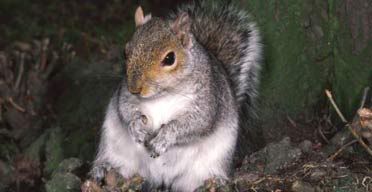"Paper bags are worse for the environment than plastic because of the extra energy needed to manufacture and transport them, the Government says." It was the previous Government, but what a silly thing to say! People campaign against plastic bags because most are used once then discarded, wasting resources and polluting the environment. Paper bags can be composted by contrast. Better is to reuse the same bag, cloth bags last for a very long time.
"Research published in New Scientistlast month suggested that 1kg of meat cost the Earth 36kg in global warming gases. The figure was based on Japanese methods of industrial beef production." Beef is the most polluting of meat sources, so using it is the most extreme example.
Many people will be surprised that a UN report said Global meat production was responsible for 18% of greenhouse gas emissions, which was slightly more than all of the world's cars, trains, and planes combined!
Interestingly while full lifecycle analysis was used to calculate the emissions for the meat sector, this wasn't the case for the transport sector, where only the fossil fuels burned by the vehicles was included, not the emissions resulting from manufacturing the vehicles. "This lopsided 'analysis' is a classical apples-and-oranges analogy that truly confused the issue," Frank Mitloehner said.
Meat requires much more fossil fuel to produce than vegetables and grains. How much more? About 200 times more for beef than for potatoes. The reason for this is simple: Cattle consume fourteen times more grain than they produce as meat. They're food factories in reverse. So it takes a lot more water, land, and of course, energy to produce that meat. We use absolutely horrific amounts of energy to grow grain to feed to cattle. In fact, over 80% of the grain grown in this country is eaten by livestock, not people.
Pierre Gerber, livestock officer at the FAO and one of the 2006 report's authors, admits that the comparison was flawed. "It's a weakness that we were aware of the issue when we used it," he says. "But it's not the point of the report.
You can do a lot for the planet simply by cutting back your overall meat intake—food writer Michael Pollan suggested that if Americans went meatless one night a week, it would be equivalent to taking "30 to 40 million cars off the road for a year." When you do decide to eat meat, though, you can make a difference by making more responsible selections.

Also many other types of meat are preferable, Pork is better, but Chicken and eggs come out very well. In past recessions people have looked for cheaper sources of meat, things like offal that are looked down on and discarded become delicasies. In hard times some turn to rabbit. Some say "eating pigeon is ‘green tech at its finest’, given that the birds live off our trash – we don’t have to spend money to feed them." The Guardian said "The ultimate ethical meal: a grey squirrel. It's low in fat, low in food miles and completely free range."
Elvis as a boy, growing up dirt poor in the American South during the Great Depression, ate Squirrels. Also rabbits, rats, possoms, crows, song birds, and anything else they could catch. These were traditional foods for the poor in the South. Eating rats or squirrels may not sound that appetising, but they are low fat, high protein foods; it is said rat tastes like musty chicken, squirrel tastes like a sweet game meat.
The River cottage are publishing a book on food from a hedgerow; bilberries, blackberries, cloudberries, common mallow, dandelions, hedge garlic, horseradish, pignuts, nettles, sloes, sweet chestnuts, water mint and wild cherries. Food For Free is a classic by Richard Mabey; over one hundred edible plants are featured together with recipes and other culinary information. There is also information on how to pick and when to pick and the regulations on picking which are very important.
Better for the enviroment and our health is to eat less meat, some suggest a meat free day. Meat free Monday has alliteration on its side.
The article I started with concludes 'an ideal diet would consist of cereals and pulses. “This is a route which virtually nobody, apart from a vegan, is going to follow,” Mr Goodall said. But there are other ways to reduce the carbon footprint. “Don’t buy anything from the supermarket,” Mr Goodall said, “or anything that’s travelled too far.”






No comments:
Post a Comment